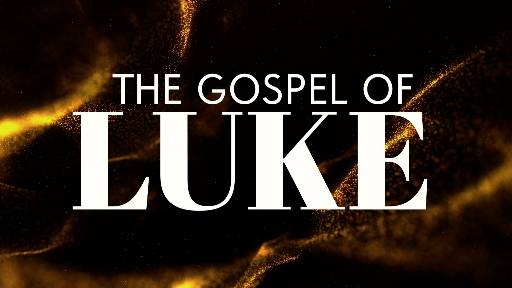-
Zachariah & Elisabeth
Contributed by Gordon Curley on Nov 28, 2017 (message contributor)
Summary: Zachariah & Elisabeth(PowerPoint slides to accompany this talk are available on request - email: gcurley@gcurley.info)
Reading: Luke chapter 1 verses 5-24 & 57-80.
Ill:
• I do not want to worry you but you have 36 shopping days to Christmas.
• Just over 5 weeks!
• Including today we have three Word & Worship services.
• Countdown to Xmas: Character’s in the Xmas story: Zacariah & Elisabeth
(a). Unbelief (verses 5-25).
Ill:
• Turn to the beginning of your New Testaments.
• Normally between the Old & New Testaments there is a blank page (look at it!)
• No I haven’t flipped. That blank page is an important reminder;
• The people had not heard a prophetic Word from God for 400 years.
• That blank page covers a 400 year old chasm.
• 400 years of heavenly dumbness, heavenly silence.
• No prophet, declaring: “Thus says the Lord”.
• No prophet, writing on a scroll; “The word of the Lord came to me saying…..”
• Just 400 years of stillness,
• A voiceless heaven.
Now that does not mean God has not been working, controlling the world he has made:
• During that 400 year silence six flags throw over the nation.
• Six occupying governments.
• God was behind the scenes orchestrating these governments;
• Preparing his world for the coming of his son.
• e.g. Alexander the Great united the world with a trade language
• ‘Koine’ Greek.
• So that when the message of Christ was to be preached and written down;
• It was in a language everyone could understand.
• e.g. God used the Romans to build roads all over Europe;
• Allowing the gospel to be able to spread across the civilised world.
Quote David O’Brien:
“The events, literature and social forces of these years
would shape the world of the New Testament”.
• History is ‘His Story’;
• And God is always (silently or visibly) working his purposes out!
During those 400 years of silence:
• A variety of influences appeared;
• That splintered Jewish society in religious fractions.
• The three primary groups were the Essenes, the Pharisees and the Sadducees.
• The Essenes are not mentioned in the New Testament (fame was preserving Dead Sea scrolls).
• The Pharisees and the Sadducees of course get lots of mentions;
• But instead of helping the people find God they merely put hindrances in their way.
• ill: Jesus would describe their leadership skills as ‘the blind leading the blind’.
• ill: And even worse he says of them; ‘Like white washed tombs’.
So the religious condition of the nation was not good:
• Yet no matter how dark the day,
• God always has His devoted and obedient people – enter Zechariah & his wife.
Incredible as it may seem:
• God choose to end the 400 years of silence;
• Not with a word to the nation.
• But by selecting an ordinary priest and his wife as choosing to speak to them!
• God chose after 400 years to publicly speak to what we might call two nobodies!
(1). A faithful priest (verse 5-7).
(1). Their names (verse 5a):
”In the time of Herod king of Judea there was a priest named Zechariah, who belonged to the priestly division of Abijah; his wife Elizabeth was also a descendant of Aaron
• His name ‘Zechariah’ means; "Jehovah has remembered".
• He was married to Elisabeth ’("God is my oath").
The meaning of Zechariah’s name is a great expression ‘God remembered’:
• This means much more than God recalls something to his mind.
• It means much more than refreshing ones memory (not that God forgets!).
Quote: Ronald Youngblood:
“To remember someone means to express concern for someone,
to visit someone with gracious love”
• God was always conscience of Zechariah & Elizabeth.
• And when the time was right he would show that concern in visible ways.
(2). Their occupations (verse 5b):
• Aaron the Levite (the brother of Moses) was Israel’s first High Priest.
• Every descendant of Aaron the Levite was automatically a priest.
• The priesthood was something you inherited whether you wanted to or not.
• This meant that there was far too many priests than were needed.
• In Zechariah’s time the priesthood bulged with more than 20,000 members.
• These were divided into twenty-four-divisions (1 Chronicles chapter 24),
• Only at Passover, Pentecost and the Feast of Tabernacles did all the priests serve.
• For the rest of the year each division did two stints a year, each stint was a week long.
Note: A priest was only allowed to marry a woman of pure Jewish family background:
• It was especially meritorious, praise-worthy to marry a woman;
• Who was also a descendant of Aaron.
• Elizabeth the wife of Zechariah was a descendant of Aaron.
• And so this was very commendable.

 Sermon Central
Sermon Central

